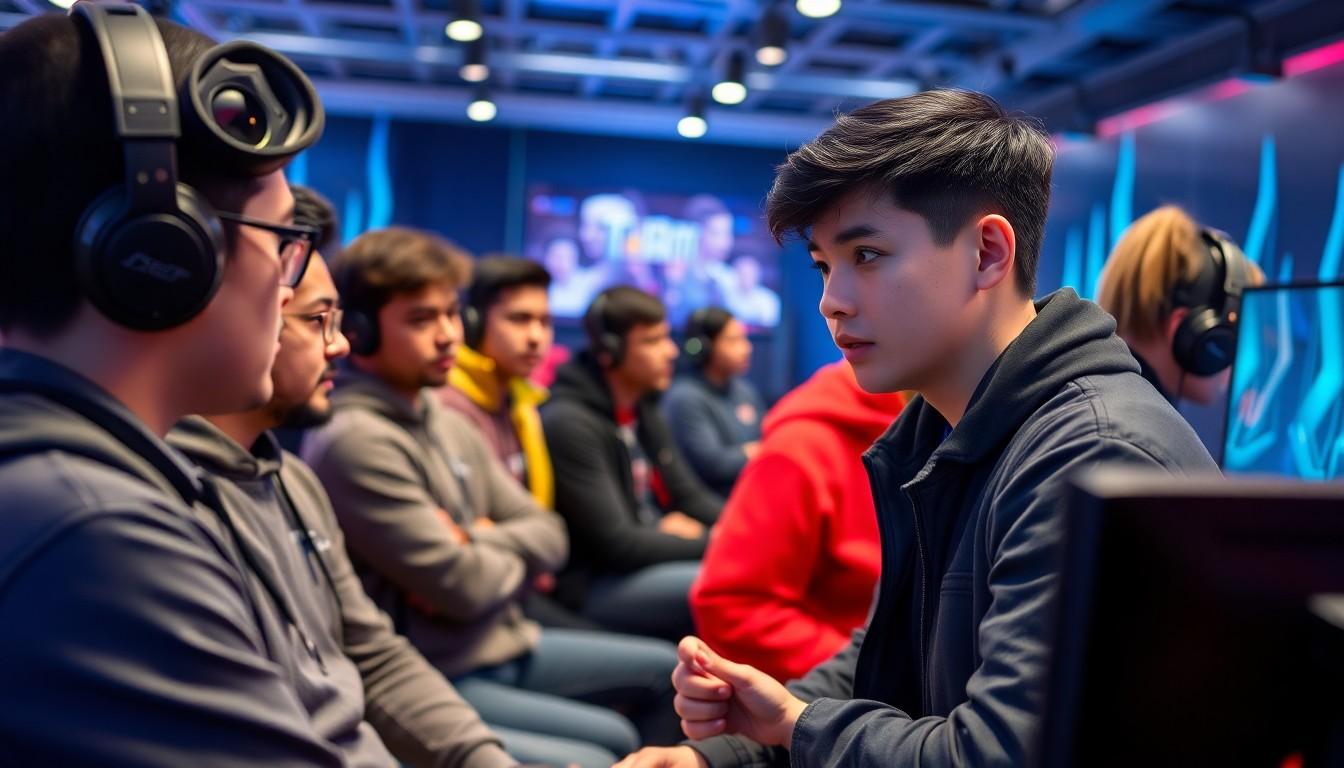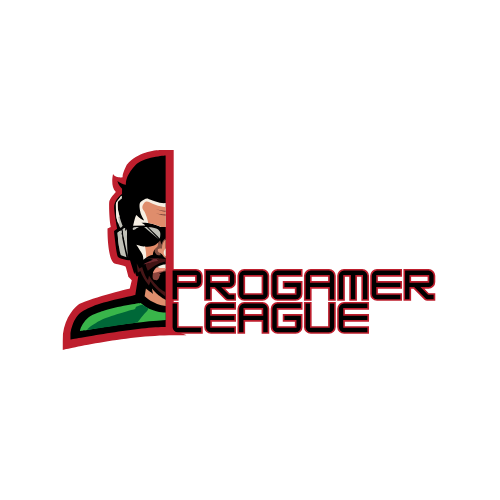
Esport Management: Unlocking Career Opportunities in the Thriving Gaming Industry
In a world where gaming isn’t just a pastime but a billion-dollar industry, the need for skilled esport management has never been more crucial. Gone are the days when gaming was merely a hobby; today, it’s a full-fledged career path. From organizing tournaments to managing player contracts, esports managers are the unsung heroes behind the scenes, ensuring everything runs smoothly while players focus on their skills.
Imagine trying to herd a group of competitive gamers—it’s like herding cats, but with more energy drinks and less sleep. As the esports scene continues to explode, the demand for savvy professionals who can navigate this chaotic landscape is skyrocketing. Whether you’re a passionate gamer or someone with a knack for business, diving into esport management could be your golden ticket to the fast-paced world of competitive gaming.
Overview of Esport Management
Esport management encompasses a wide range of tasks aimed at optimizing the operations and performance within the gaming industry. Managing tournaments represents one of the core responsibilities, where esports managers coordinate logistics, set schedules, and ensure fair play. Players require contract management, as professionals negotiate terms for both salaries and sponsorships, balancing the interests of athletes and organizations.
Strategic marketing boosts visibility during events, encouraging fan engagement. Promotional activities drive ticket sales and attract sponsors, contributing to the overall success of tournaments. Understanding the unique dynamics of esports is crucial, as traditional sport principles may not directly apply.
Data analytics enhances decision-making, offering insights into player performance and audience preferences. This information allows managers to make informed choices about team compositions and marketing campaigns. Social media management fosters community interaction, cultivating loyal fan bases and increasing brand awareness.
Networking plays a vital role in establishing partnerships with sponsors, game developers, and streaming platforms. These collaborations can lead to lucrative deals and expanded exposure for teams and events. As technology advances, esports managers must adapt to new platforms and tools, ensuring that they remain competitive in an evolving landscape.
Career opportunities within esports management are growing. Aspiring professionals often explore roles such as team manager, event coordinator, and marketing specialist. Each position requires a unique skill set, yet all share a common goal: enhancing the overall esports experience for players and fans alike.
Key Roles in Esport Management

Esport management encompasses several key roles that contribute significantly to the industry’s success.
Esport Team Managers
Esport team managers oversee all aspects of team operations. Their responsibilities include recruiting players, managing schedules, and developing training programs. Communication skills play a crucial role, as managers must foster positive relationships with players, coaches, and sponsors. Coordinating travel arrangements for tournaments is another essential task, ensuring players remain focused on competition. Managers analyze performance metrics to provide feedback for player development. As the esports landscape evolves, adapting to player needs becomes increasingly important, leading to improved team dynamics and overall performance.
Event Coordinators
Event coordinators specialize in planning and executing tournaments and competitions. Their tasks range from managing budgets to securing venues for events. Attention to detail ensures that every element runs smoothly, including logistics, schedules, and equipment management. Coordinators also negotiate contracts with vendors and sponsors to enhance event quality. Strong marketing strategies are necessary to attract participants and audiences, boosting visibility for the event. Building partnerships with streaming platforms increases reach, further engaging fans in real-time. Coordinators must stay updated on industry trends to ensure innovative and memorable experiences for attendees.
Challenges in Esport Management
Esport management faces several critical challenges that impact the industry’s growth and sustainability.
Financial Sustainability
Balancing budgets remains a significant hurdle for many esports organizations. Managing operational costs while maximizing revenue streams is essential for long-term success. Sponsorship deals play a crucial role in generating income, yet reliance on a few sponsors can create vulnerabilities. Diversifying revenue through merchandise sales and ticket sales helps build a more stable financial base. Keeping track of player salaries and event expenditures is also paramount to preventing budget overruns. Effective financial strategies can support growth while ensuring that funds are allocated wisely.
Player Well-Being
Ensuring player well-being is crucial in promoting a healthy esports environment. Burnout and mental health issues have become prevalent among competitive gamers due to intense pressure and unrealistic expectations. Support systems, such as mental health resources and training schedules that allow for adequate rest, should be prioritized. Managers must foster open communication to identify any signs of distress among players. Creating a positive work-life balance enhances performance and overall job satisfaction. Recognizing individuals’ needs will ultimately contribute to a more sustainable esports ecosystem.
Strategies for Successful Esport Management
Effective esport management hinges on targeted strategies in marketing and community engagement. These elements directly contribute to the growth and sustainability of organizations within the industry.
Marketing and Sponsorship
Successful marketing drives visibility and attracts sponsors. Streamlining promotional efforts amplifies brand recognition. It’s essential to create compelling content that resonates with target audiences across platforms. Strong relationships with sponsors enhance funding opportunities. Tactical partnerships can lead to innovative marketing campaigns that widen reach. Regular analysis of marketing metrics ensures strategies remain effective. Customizing sponsorship packages caters to diverse interests, appealing to various stakeholders. Understanding what attracts fans and sponsors is vital for long-term success.
Community Engagement
Building a loyal community fosters a supportive fan base. Active social media presence enables direct interaction with fans, enriching their experience. Hosting events or tournaments encourages community participation, strengthening connections. Feedback from fans influences decision-making, promoting a sense of inclusion. Creating platforms for discussions helps address player concerns while enhancing transparency. Engaging with content creators expands visibility and fosters collaboration. Encouraging user-generated content builds a sense of ownership within the community. Prioritizing these strategies helps in cultivating a thriving environment for players and fans alike.
Future Trends in Esport Management
Dynamic shifts in the esports landscape shape the future of esport management. Emerging technologies, such as virtual reality and augmented reality, enhance gaming experiences and drive interest. Additionally, players increasingly seek mental health support, prompting managers to integrate wellness programs into team operations.
Diverse revenue streams become vital as organizations explore avenues beyond traditional sponsorships. Merchandising, ticket sales, and exclusive content offerings gain traction among fans. Data analytics also play a crucial role, influencing decisions related to team strategies and marketing efforts.
Growing community engagement reflects a shift towards personalized fan experiences. Managers leverage social media platforms to foster interactive connections, driving loyalty. Direct feedback from fans helps refine content and events, ensuring relevance and excitement.
Sustainability practices gain attention, with organizations embracing eco-friendly initiatives. Reducing the environmental impact of events enhances brand reputation and aligns with audience values. As a result, managers must proactively address sustainability in their operational strategies.
Interdisciplinary collaboration emerges, with esport managers working alongside professionals from various fields. Partnerships with marketers, psychologists, and event planners enhance overall organizational effectiveness. Professionals prioritize adaptability and continuous learning to stay ahead in a rapidly evolving environment.
Global expansion marks another trend, expanding the reach of esports beyond established markets. Emerging regions contribute to the growing audience and number of players, motivating managers to develop localized strategies. Understanding cultural preferences becomes essential in tailoring approaches to diverse markets.
Investing in educational programs also plays a significant role, as universities offer coursework and degrees specifically in esport management. Establishing well-rounded educational paths prepares students for future opportunities in this dynamic field.
Conclusion
Esport management is rapidly becoming a vital component of the gaming industry. As the landscape evolves and expands, the need for skilled professionals who can navigate its complexities is more important than ever. With a focus on community engagement, strategic marketing, and player well-being, managers play a critical role in shaping the future of esports.
The blend of business acumen and passion for gaming creates unique opportunities for those looking to enter this exciting field. As technology advances and new trends emerge, the potential for growth in esports management will continue to attract talent. Embracing these changes will not only enhance the esports experience but also contribute to the industry’s sustainability and success.
